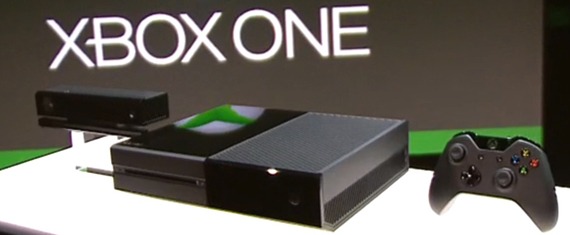 The back-and-forth battle between Xbox One pre-orders and PS4 pre-orders has waged since Microsoft and Sony announced their respective consoles’ pricing and release this holiday season. But while the posturing among fanboys has focused on hardware pre-orders, nobody’s discussed how game pre-orders are performing. That tale is equally interesting, because the trend in Xbox One games pre-orders may not bode well for Microsoft’s console. In fact, Amazon data
The back-and-forth battle between Xbox One pre-orders and PS4 pre-orders has waged since Microsoft and Sony announced their respective consoles’ pricing and release this holiday season. But while the posturing among fanboys has focused on hardware pre-orders, nobody’s discussed how game pre-orders are performing. That tale is equally interesting, because the trend in Xbox One games pre-orders may not bode well for Microsoft’s console. In fact, Amazon data shows the Xbox One may be overly reliant on first-party games, perhaps to the same degree as the ill-fated Nintendo GameCube.
Sony seems to have a pre-order advantage when it comes to hardware, with two options for stand-alone PS4 pre-orders and four separate PS4 launch-day bundles still available at Amazon. (For what it’s worth, if you want a PS4 at launch, those PS4 launch-day bundles may be the only way to nab one, so order soon.) The Xbox One has just one option at Amazon, the Xbox One Day One Edition
, which is still available for pre-order in spite of its significant increase in popularity following Microsoft’s reversal of its DRM and used-game policies. As a result of Sony’s bundle barrage, the PS4 owns the top spot in overall pre-order volume, even as the Xbox One has the greater short-term momentum.
The software side of things tells a far different story — and that’s not necessarily a good thing for Microsoft. Xbox One games pre-orders show a decided advantage for first-party titles over third-party ones, a position that’s not often favorable for a gaming console. Four of the top ten most-popular Xbox One games pre-orders at Amazon are first-party titles (Forza Motorsport 5
, Dead Rising 3
, Ryse: Son of Rome
and Kinect Sports Rivals
), while six of the top 20 Xbox One games are published by Microsoft. The PS4, on the other hand, has two first-party games in the PS4 top 20 pre-orders
(Killzone: Shadow Fall
and inFAMOUS: Second Son
), and none at all in the top 10. When you remove hardware from the equation — again, because Sony has four PS4 bundles — you still end up with only one first-party PS4 game in the top ten and three in the top 20. In both consoles’ case, the third-party winners are Activision, EA and Ubisoft — but the real long-term winner may be Sony and its PS4.
Nintendo is synonymous with first-party console dominance, a trend that goes all the way back to the original NES and Super Mario Bros. In many cases, being associated with Nintendo isn’t a bad thing, but when it comes to first-party dominance on a given platform, it’s a place to tread lightly. The Wii U is one recent example, as EA announced it has no third-party games in development at all for the system while Nintendo trotted out a deluge of first-party games as a sign of the console’s vitality. But those first-party games are generally all the system has, even a mere seven months after release. The last time we saw this trend was with the ill-fated GameCube, which stayed afloat only due to of first-party games before finally petering out.
The third-party situation with Xbox One games seems to be following a similar path. Microsoft has some great-looking first-party Xbox One games on the horizon, but its strongest third-party titles are multiplatform and will also appear on PS4. One could make the argument that Sony has announced fewer first-party games in general, thus leading to a lower uptake of first-party PS4 games pre-orders. The flip side would be noting that Microsoft has nabbed first-party publishing rights for some titles that in previous generations would’ve been third-party Xbox One games. For instance, Microsoft is publishing Dead Rising 3, which comes from a Capcom series, and the first-party game Sunset Overdrive is being developed by Insomniac Games, traditionally a Sony partner.
Still, seeing the sheer dominance of first-party Xbox One games could be great news for gamers wanting reassurance that there won’t be garbageware on the Xbox One — or it could be a warning sign that the Xbox One could become the next Nintendo GameCube. Is the prevalence of first-party titles a sign of Microsoft’s internal dedication to an outstanding launch, or a sign of its overreliance on its own studios for Xbox One games because outside publishers have been more keen on the PS4 behind closed doors? Most third-party booths at E3, for instance, showed the PS4 versions when there was a behind-closed-doors demo. What do you think? Is the Xbox One games pre-order trend a good or bad development for Microsoft? Sound off in the comments below.
